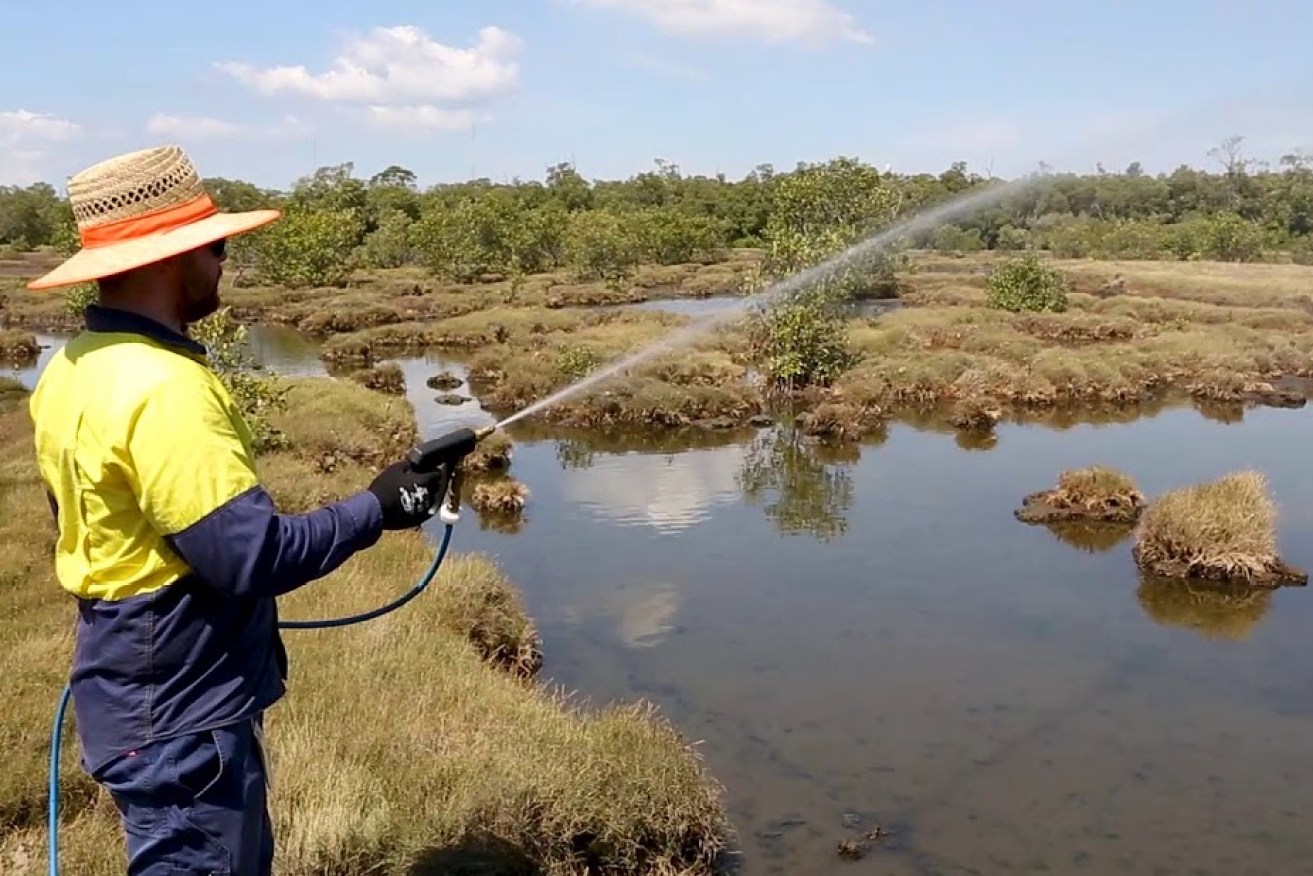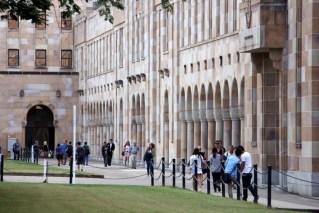Silent outbreak – mosquito-borne diseases worst in five years
Urban areas of Queensland are experiencing the biggest outbreak of debilitating mosquito-borne diseases in five years.

A worker sprays wetlands where mosquitoes are known to breed. (Source: Brisbane City Council)
Queensland faces additional health threats in 2020, with the number of cases of Ross River virus and Barmah Forest virus, both spread by mosquitoes, already higher than recent full years. The tally is higher in the more heavily-populated urban southeast, and comes as people are urged to stay at home wherever and whenever possible to avoid the novel coronavirus that is spread by other people, not mosquitoes.
In the year to May 3, Queensland had recorded 1551 cases of Ross River virus – more than the last two years combined, and the highest number since 2015 when 4586 were recorded in a full 12-month period.
Ross River virus symptoms include painful or swollen joints, sore muscles and aching tendons, fever, tiredness, headaches, and swollen lymph nodes. The disease can last weeks or months, sometimes even years.
The Metro North health region has so far recorded 295 cases of Ross River, the Sunshine Coast 216, Townsville 205 and Metro South 202 cases. Health spokespeople were not in a position to comment yesterday.
Also in the year to May 3, Queensland had recorded 140 cases of Barmah Forest virus, including 46 in the Sunshine Coast health region, 16 in Metro North and 12 in Metro South.
Barmah Forest virus has similar symptoms to Ross River, sometimes with a skin rash too, and also requires a blood test to diagnose. It is not clear how the number of tests being conducted for mosquito-borne diseases compares to previous years.
During the recent council elections, Labor accused the Liberal National Party administration of an underspend in the mosquito control budget, where wetlands and waterways are sprayed to reduce the number of mosquitoes in the community. Brisbane City Council did not respond to questions from InQueensland.
Griffith University researcher Dr Adam Taylor said the number of mosquito-borne diseases fluctuated depending on weather and environmental factors, and over the longer term would increase with climate change. In Queensland, a dry autumn and winter last year was followed by a wet start to 2020 for some areas, creating more pooled water in which mosquitoes can breed.
“We see these mosquitoes are spreading globally and the viruses are spreading globally with them,” Taylor said.
“In our lab we are quite interested in developing new therapies, vaccines and antivirals.”
Queensland has also recorded 37 cases of malaria this year, likely to involve returned travellers, and 53 cases of dengue fever, which scientists have attempted to eliminate by spreading Wolbachia-infected mosquitoes in certain areas.
“Currently the best advice for people is still to avoid mosquito bites, be it through having screened windows, mosquito nets over beds, or DEET repellants,” Taylor said.
“We can also prevent mosquitoes breeding by getting rid of any stagnant water lying around.”












